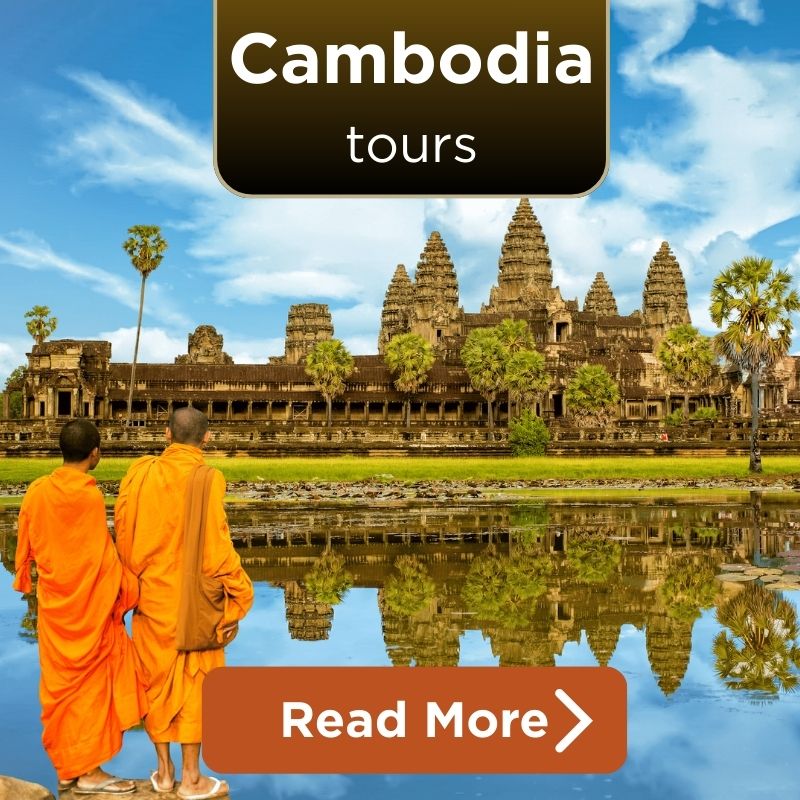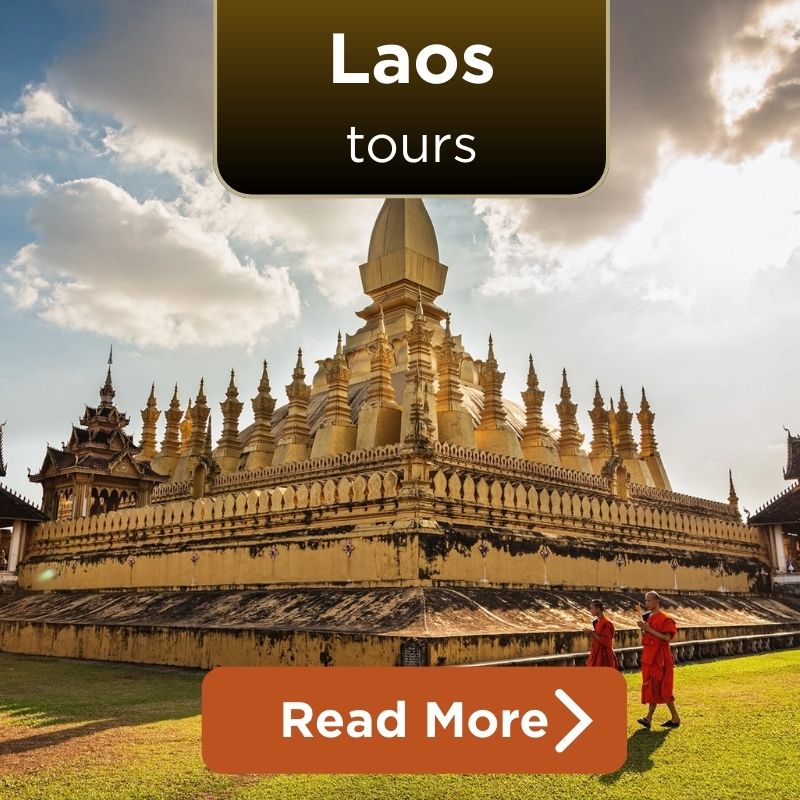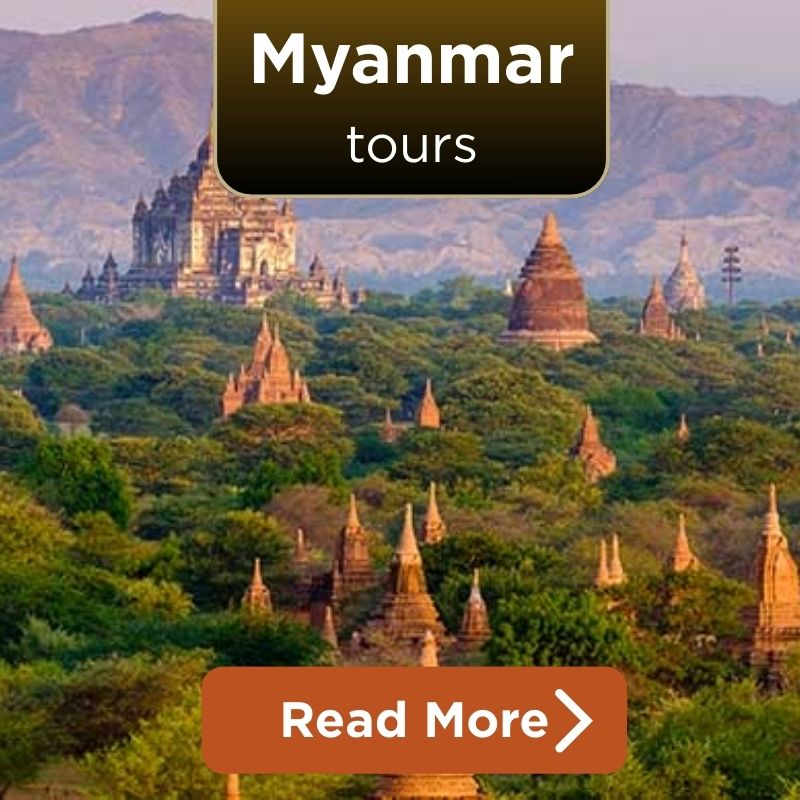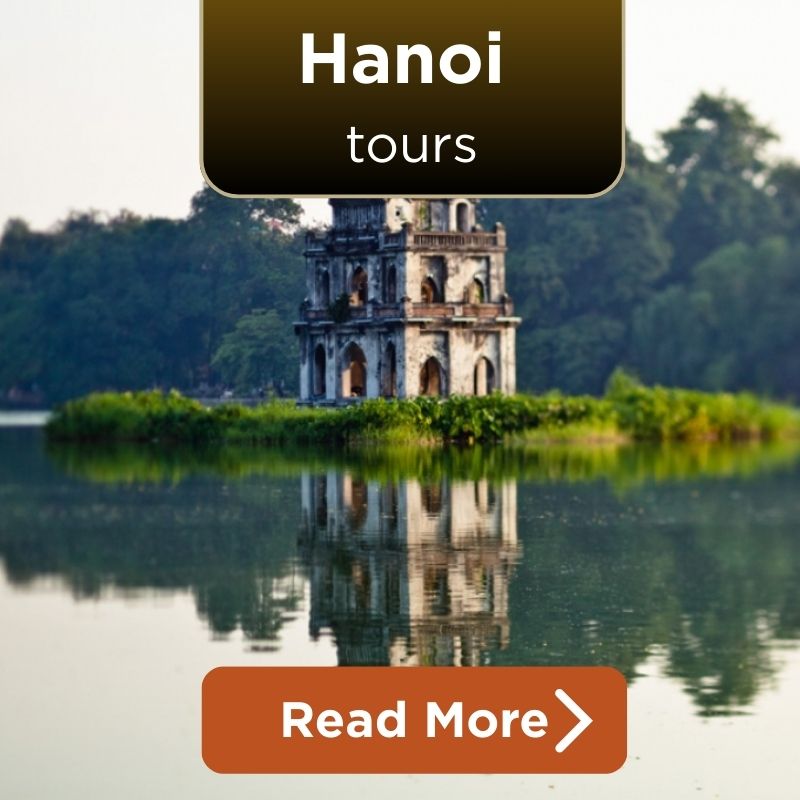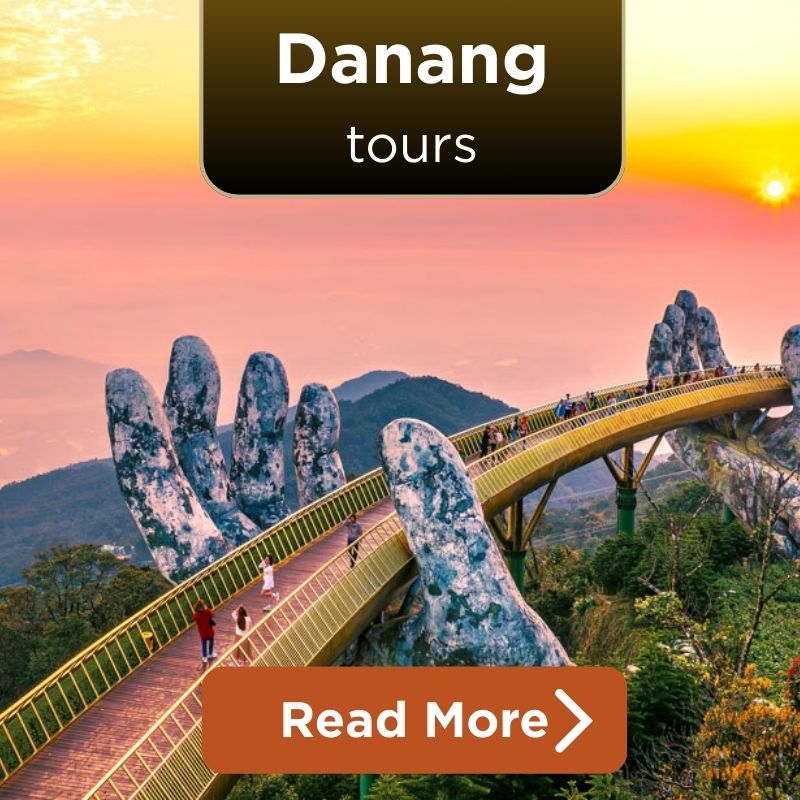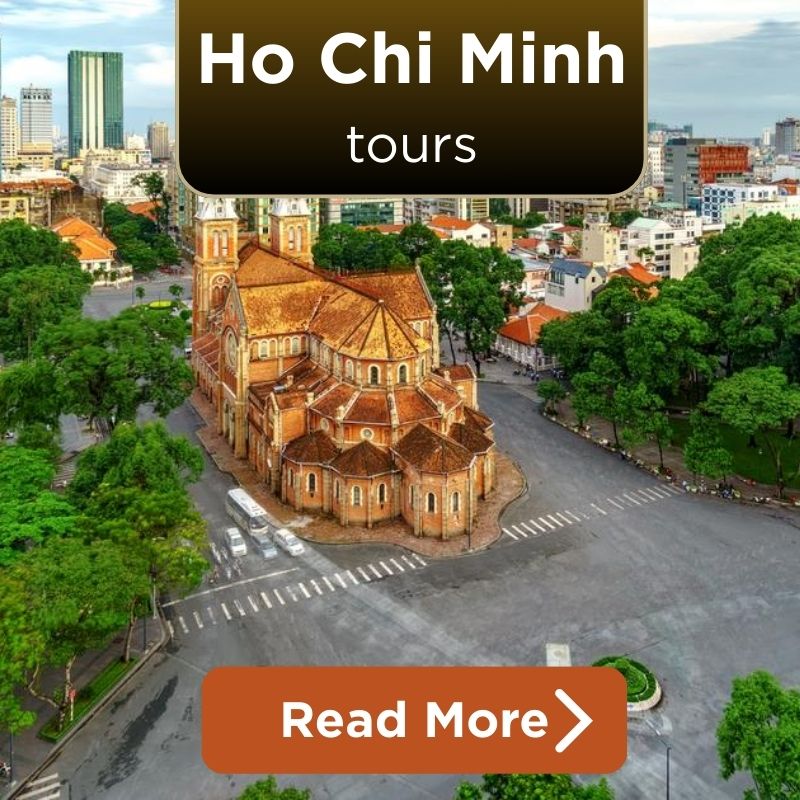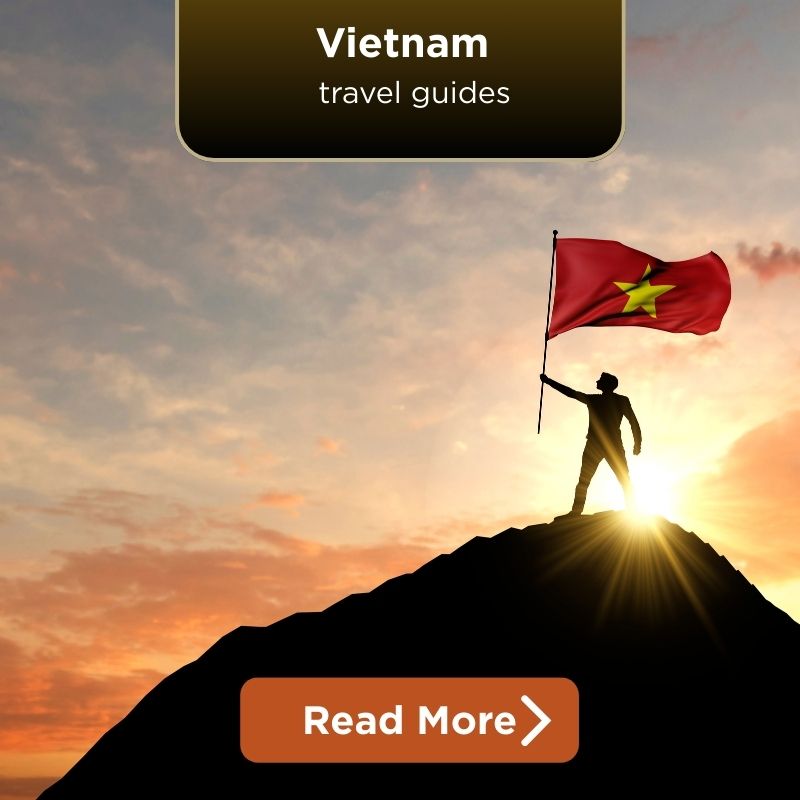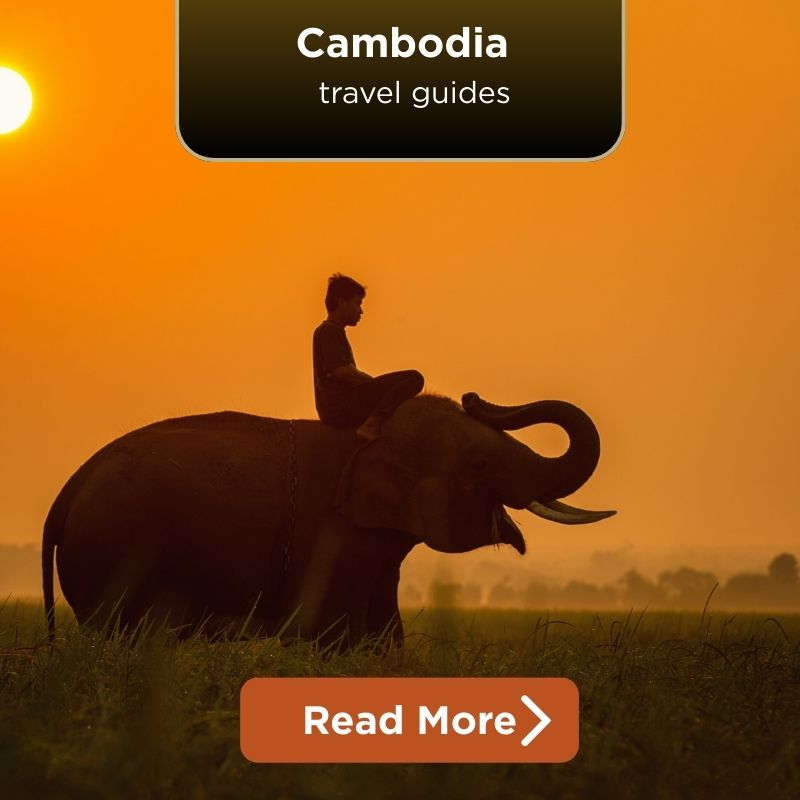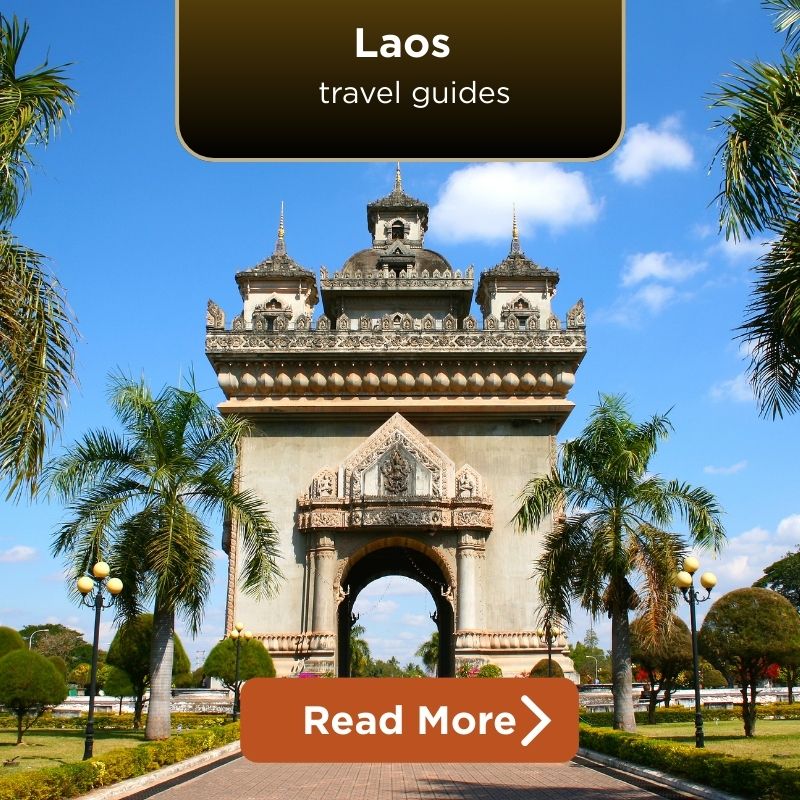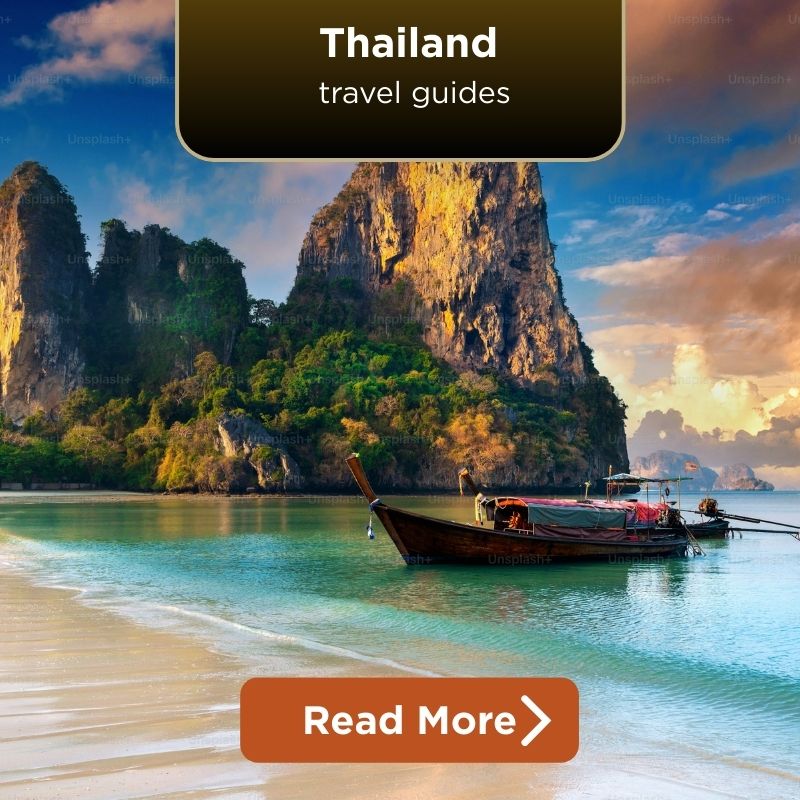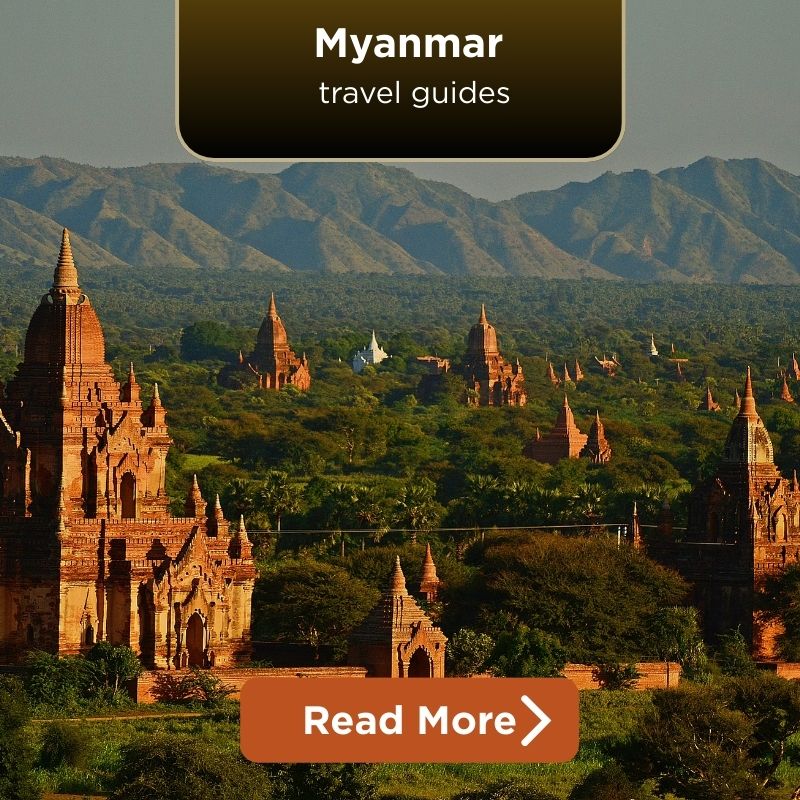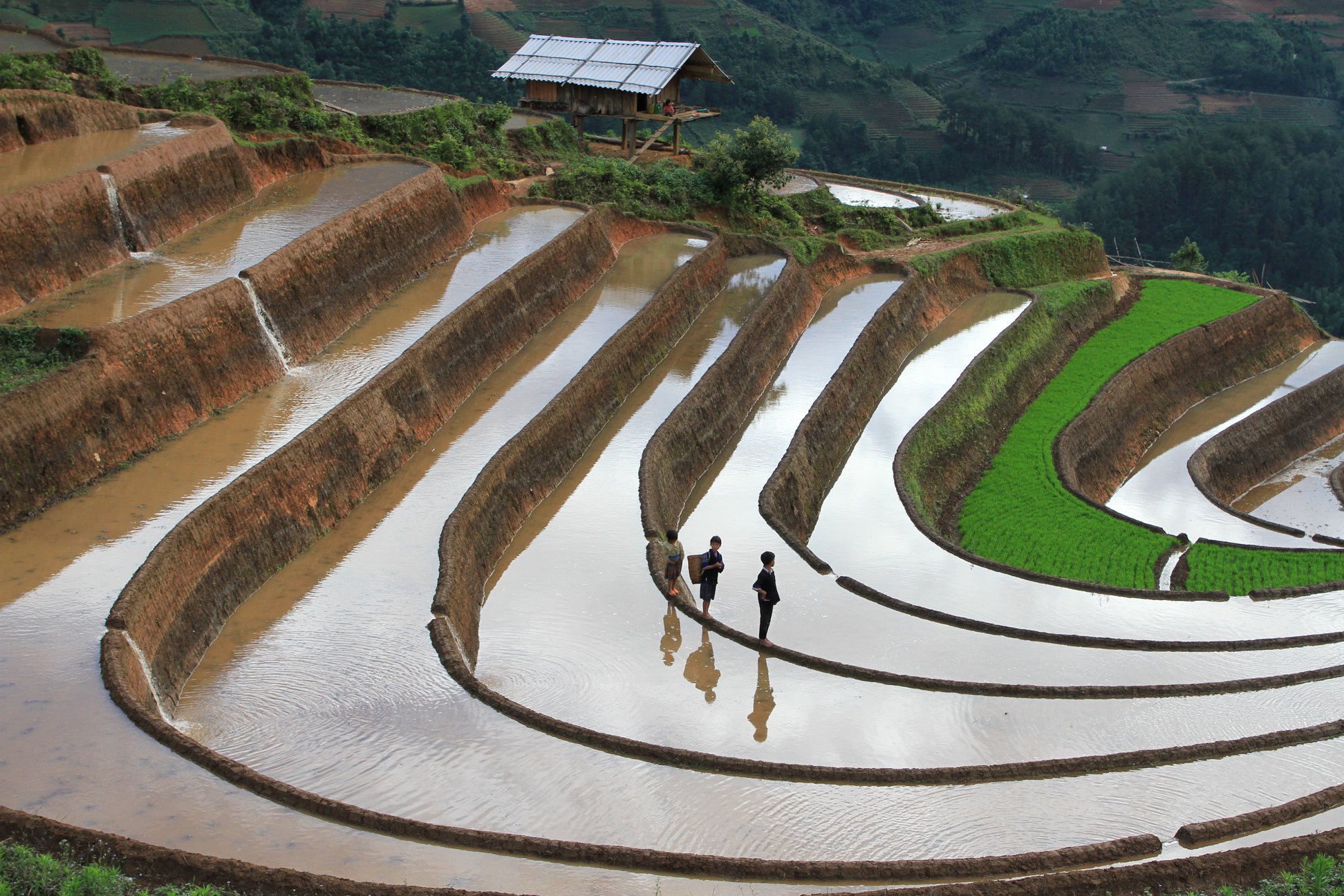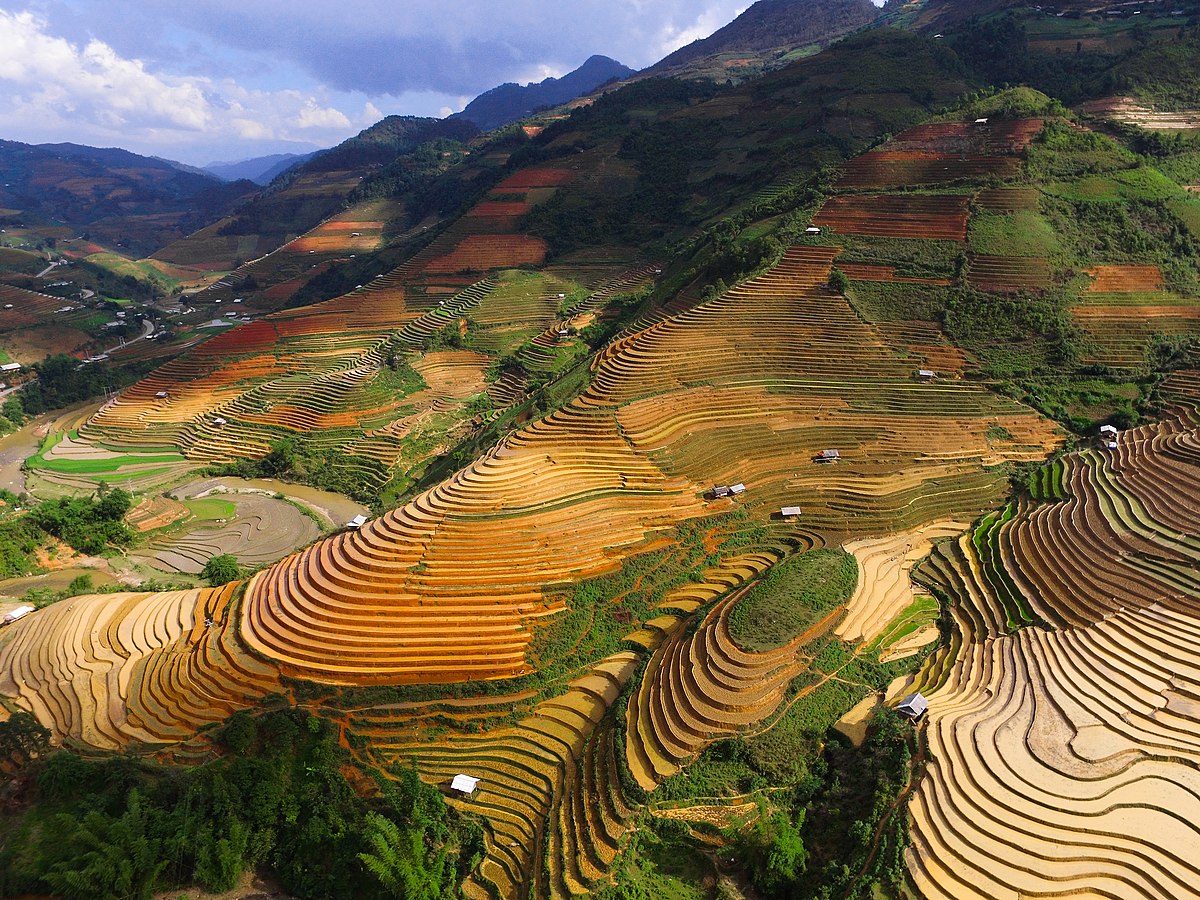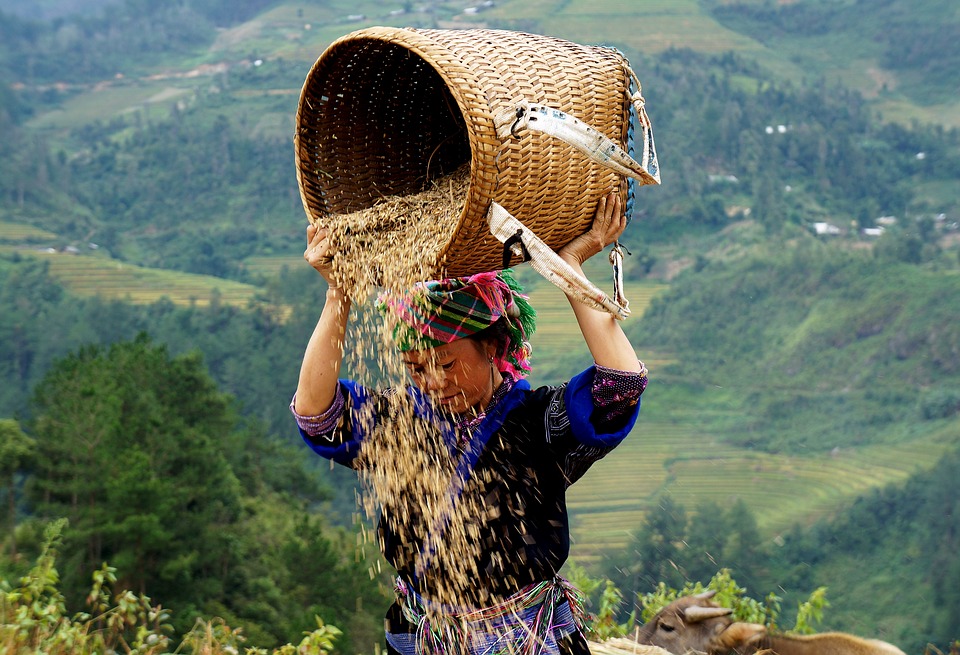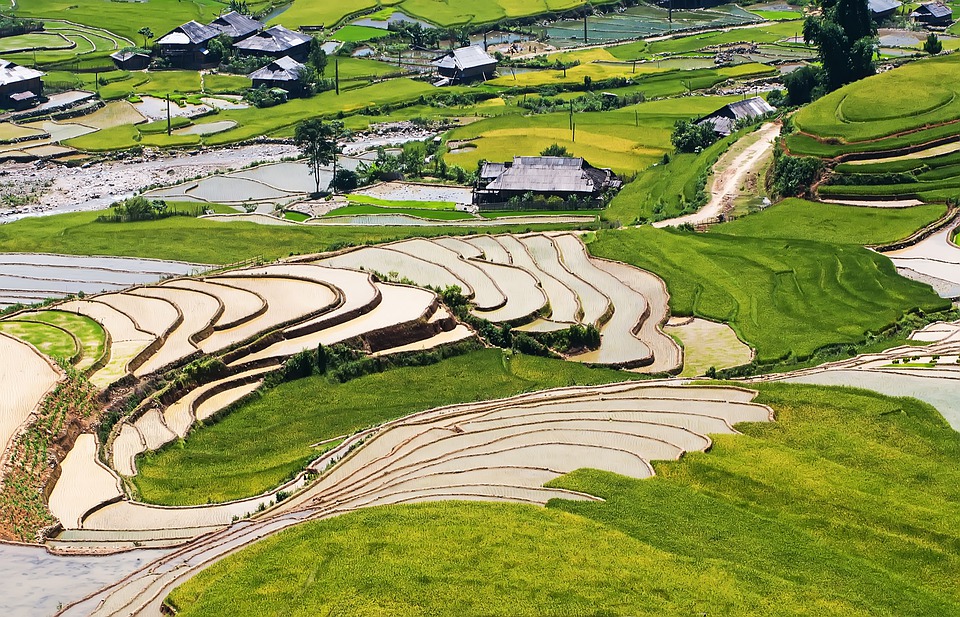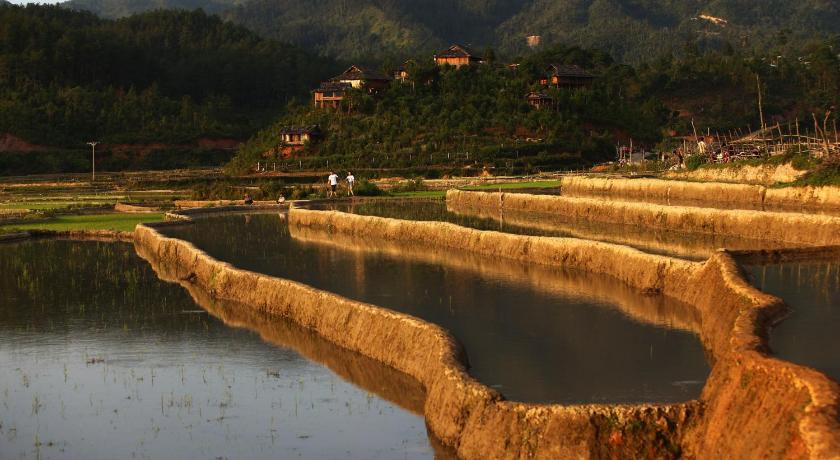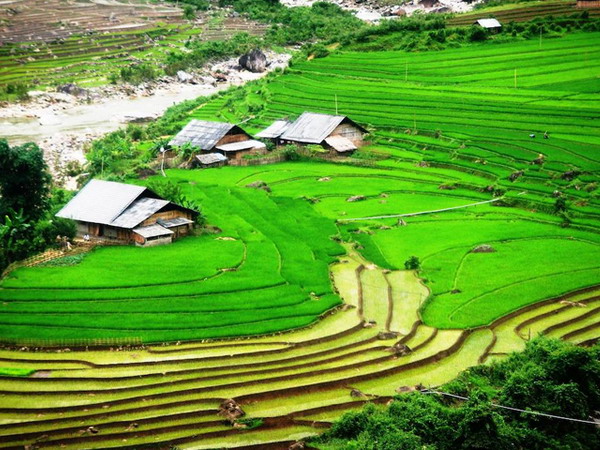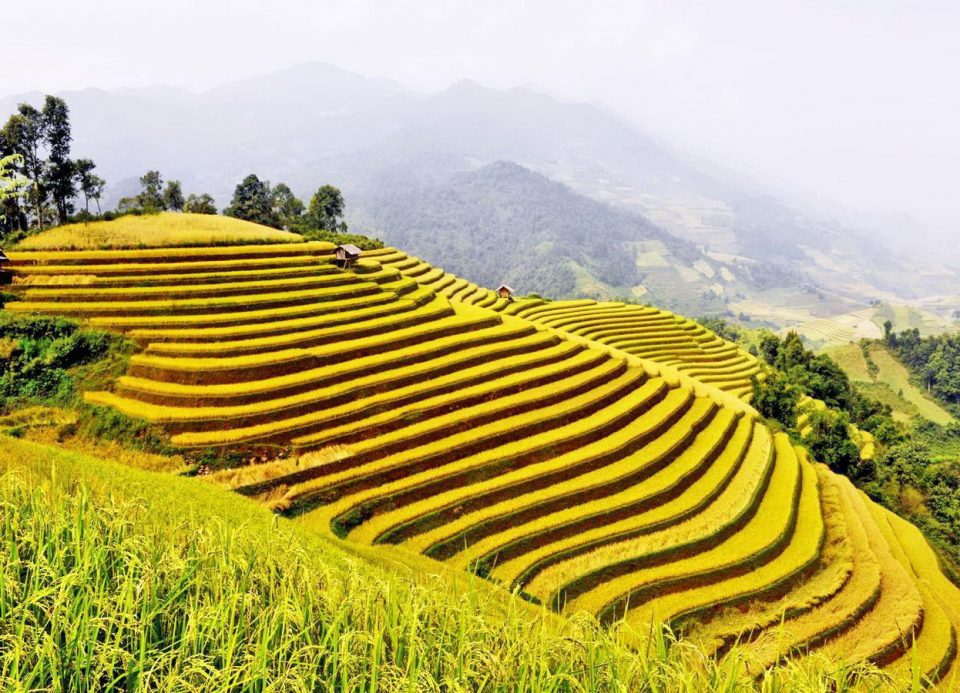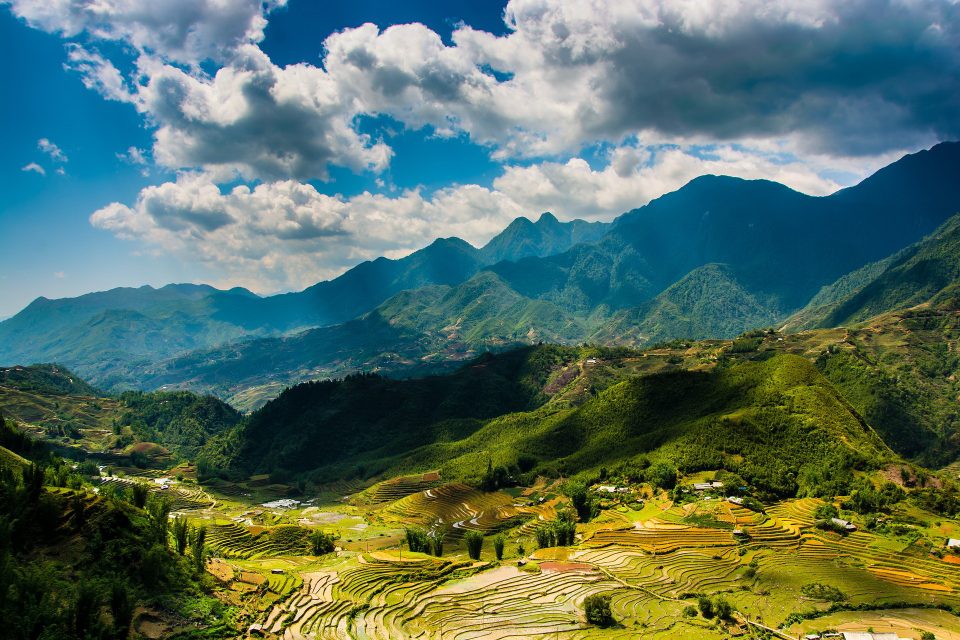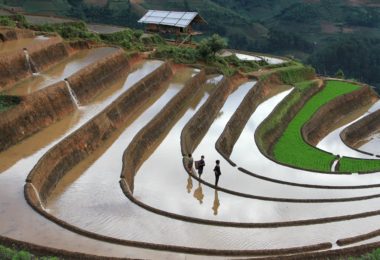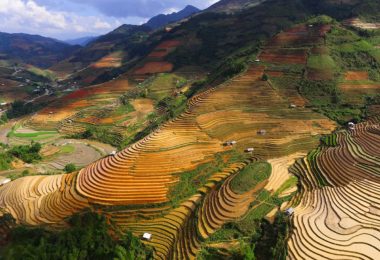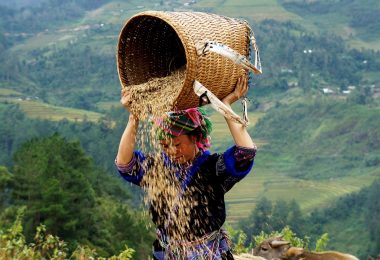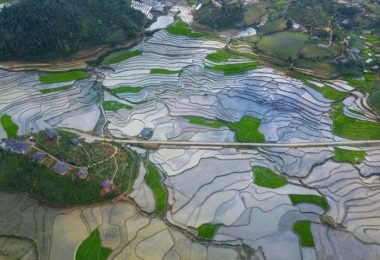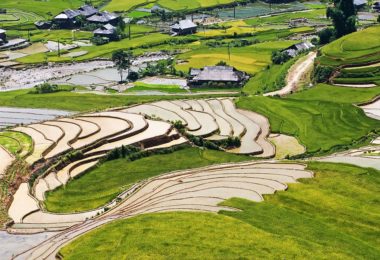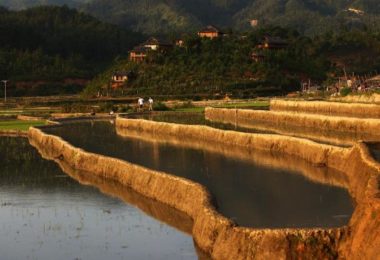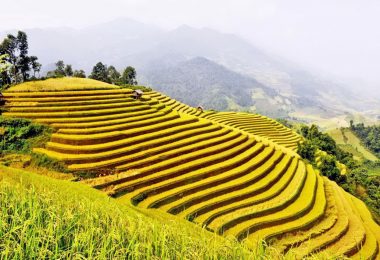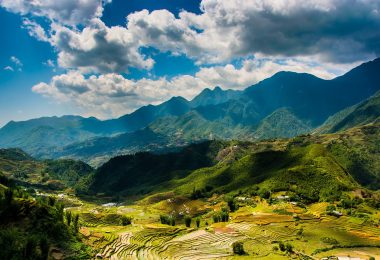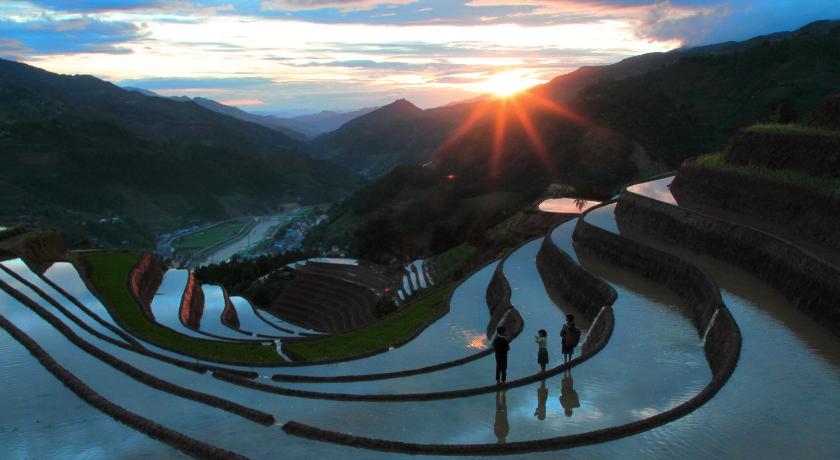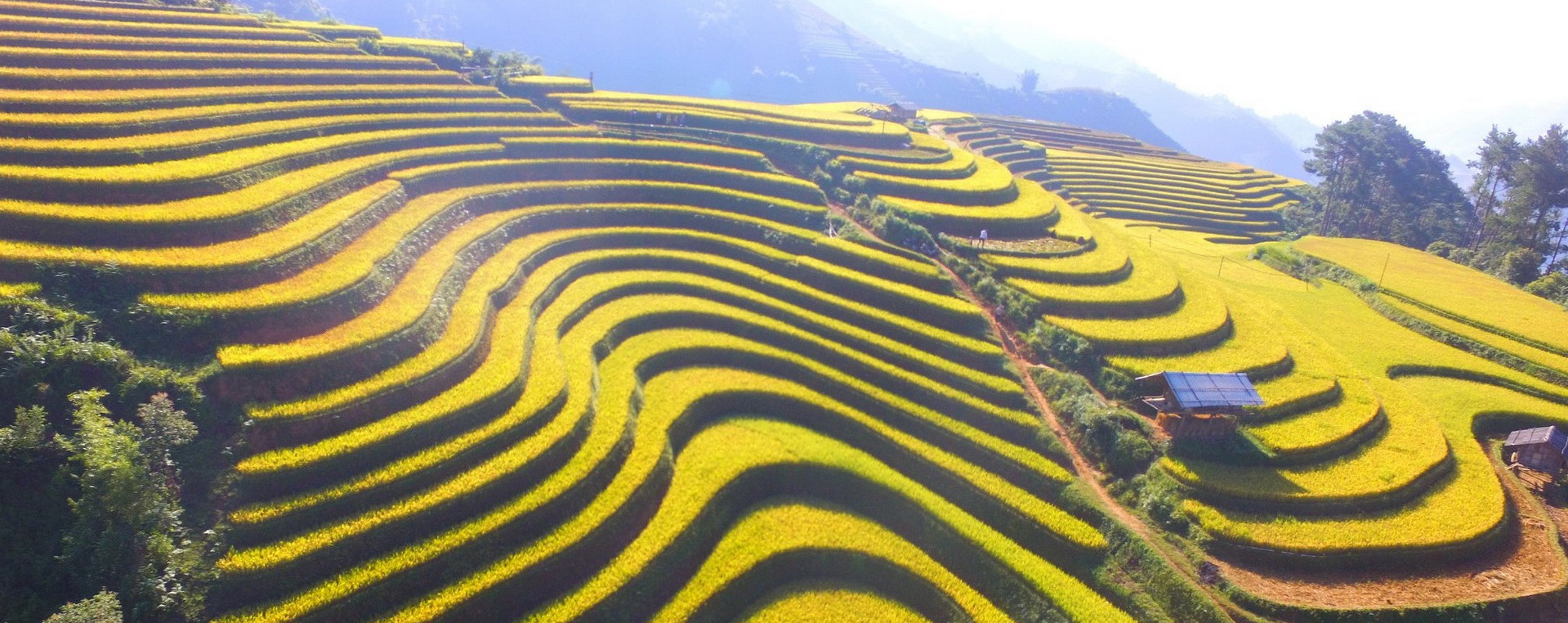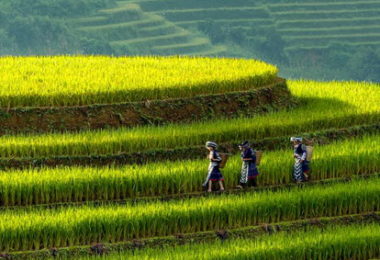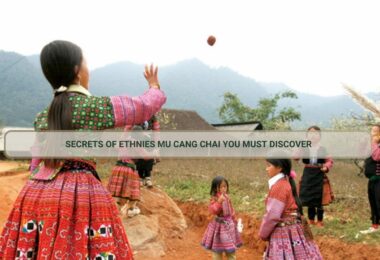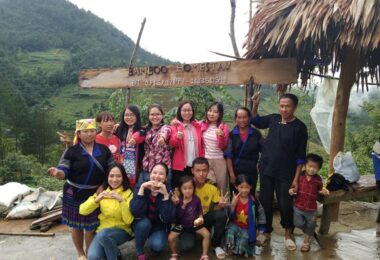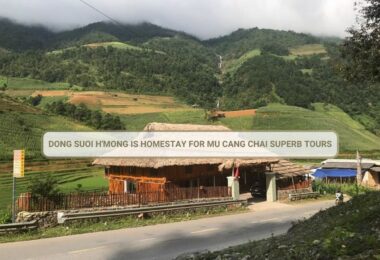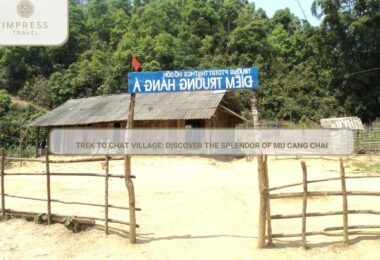Mu Cang Chai, a rural district in the Yen Bai province of Vietnam, is renowned for its breathtaking terraced rice fields and rich cultural heritage. For travelers venturing into this scenic area, understanding how to exchange money—from foreign currencies to Vietnamese Dong (VNĐ)—is essential for a smooth travel experience. This comprehensive guide covers various options including exchanges at airports, city centers, hotels, banks, and ATMs.
Understanding the Local Economy of Mu Cang Chai
Mu Cang Chai is predominantly agricultural, with rice farming being the cornerstone of local livelihoods. The economy is supplemented by tourism, which has grown due to the area’s stunning landscapes and cultural significance. For visitors, this means that many transactions, particularly in more rural or remote areas, are handled in cash.
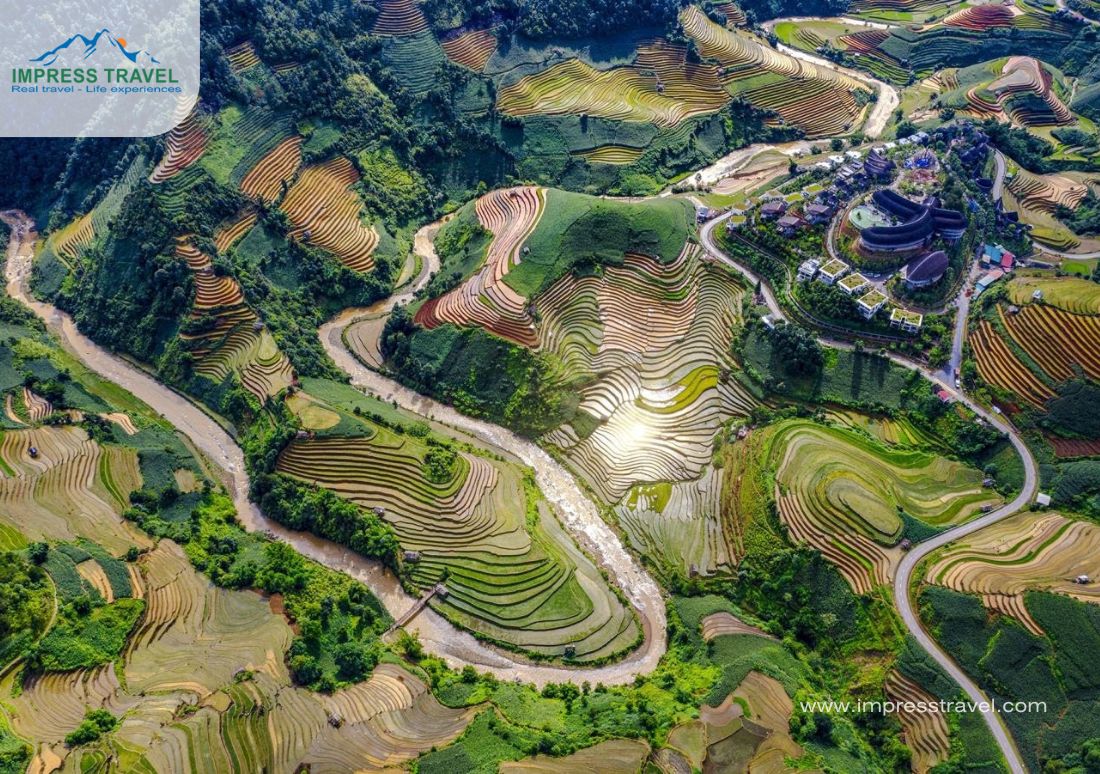
Mu Cang Chai
Why Small Denominations Matter in Rural Vietnam
When traveling through Mu Cang Chai’s rural landscapes, it’s crucial to understand the local economy, particularly the use of small denominations. This region, growing in tourist popularity, primarily relies on cash transactions. Small denominations are especially important for everyday purchases.
The Practicality of Using Smaller Bills
In Mu Cang Chai, daily transactions usually involve small amounts of money. Whether buying local coffee, snacks from vendors, or paying for a motorbike ride, prices are low. Using large notes can be problematic since many vendors cannot break 100,000 VNĐ or 500,000 VNĐ. Carrying smaller notes like 10,000 VNĐ, 20,000 VNĐ, and 50,000 VNĐ facilitates smoother transactions and respects vendors’ limited change.
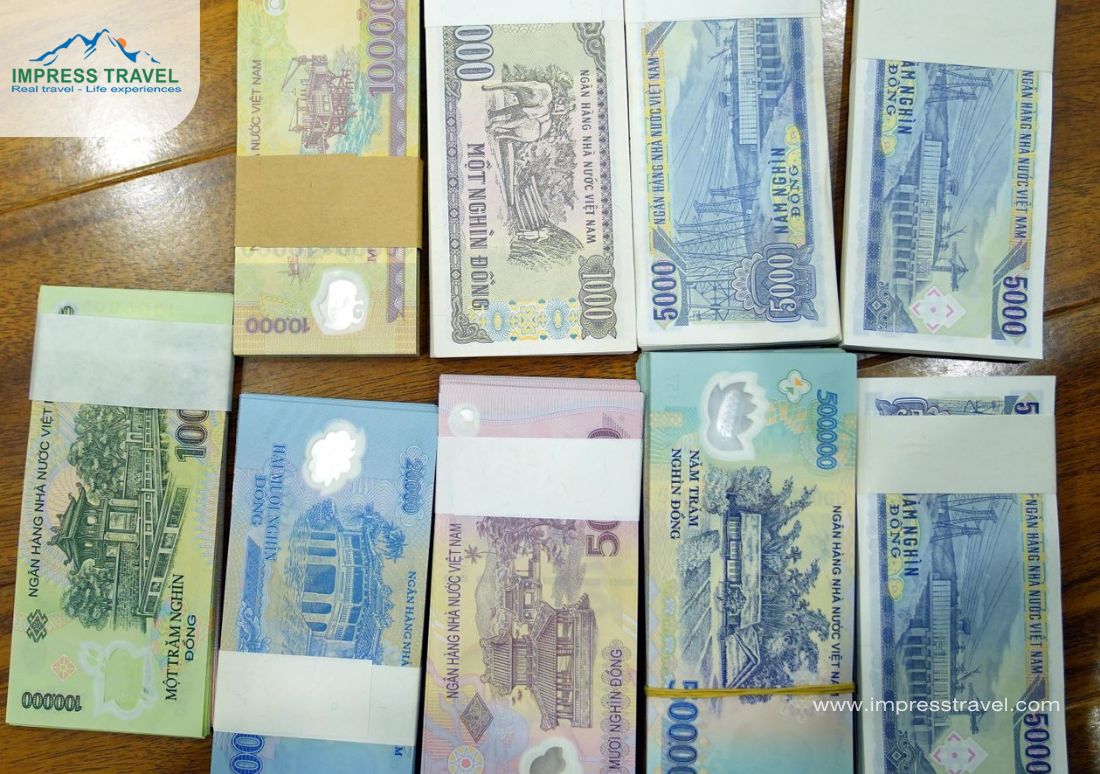
Exchange money in Mu Cang Chai- Carrying smaller notes
Cultural Considerations with Cash Transactions
Using small denominations shows cultural sensitivity. It reflects respect for the local economy’s scale and the cash flow challenges small businesses face. In rural Vietnam, where banking services are less accessible than in cities, cash is often used for transactions. By using smaller notes, you support local businesses and simplify transactions, making them more respectful.
Strategies for Managing Your Money in Mu Cang Chai
Travelers to Mu Cang Chai should exchange money into a mix of denominations while in larger cities like Hanoi. At banks or exchange services, requesting specific denominations can prevent hassles in remote areas of Yen Bai province.
It’s also wise to organize cash so smaller denominations are more accessible. Keep larger notes tucked away unless necessary. This approach not only simplifies purchases but also enhances security by preventing the display of large sums of cash.
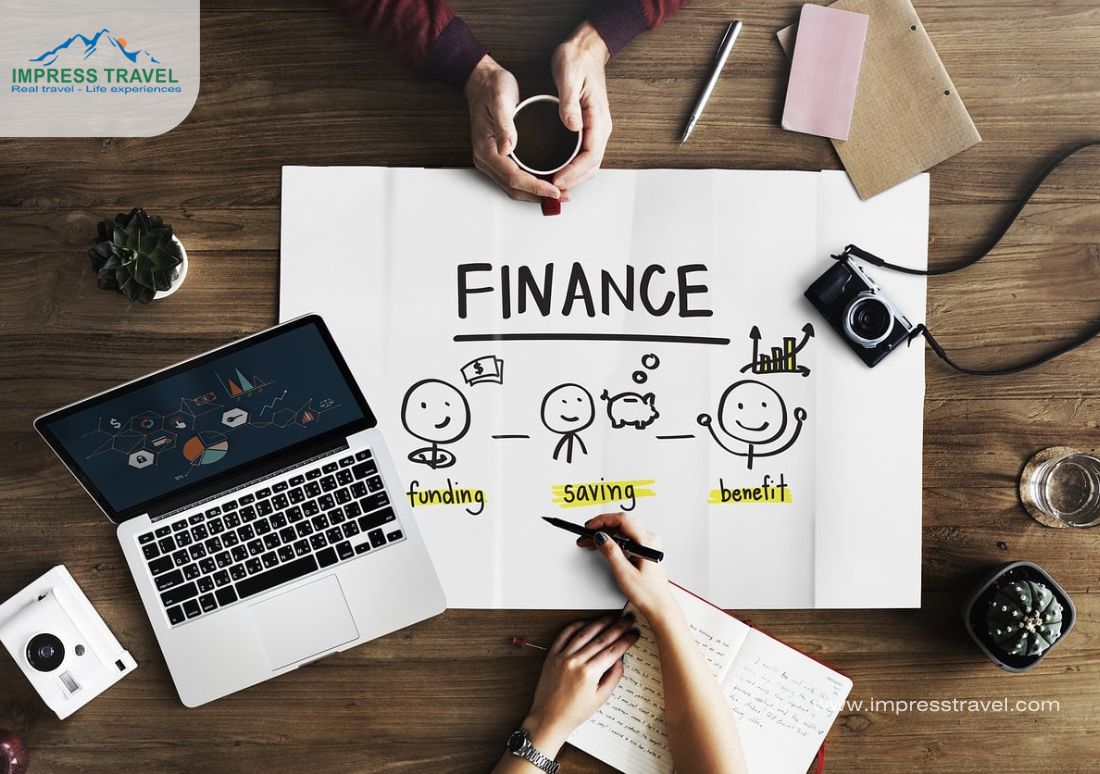
Exchange money in Mu Cang Chai- Strategies for Managing Your Money
Navigating Currency Exchange Options in Vietnam
Before diving into where to exchange money, it’s important to familiarize yourself with the Vietnamese currency, the Dong (VNĐ). The Dong comes in both coins and notes. Though in the present coins are no longer used like before. Note denominations include 1,000 VNĐ, 2,000 VNĐ, 5,000 VNĐ, 10,000 VNĐ, 20,000 VNĐ, 50,000 VNĐ, 100,000 VNĐ, 200,000 VNĐ, and 500,000 VNĐ.
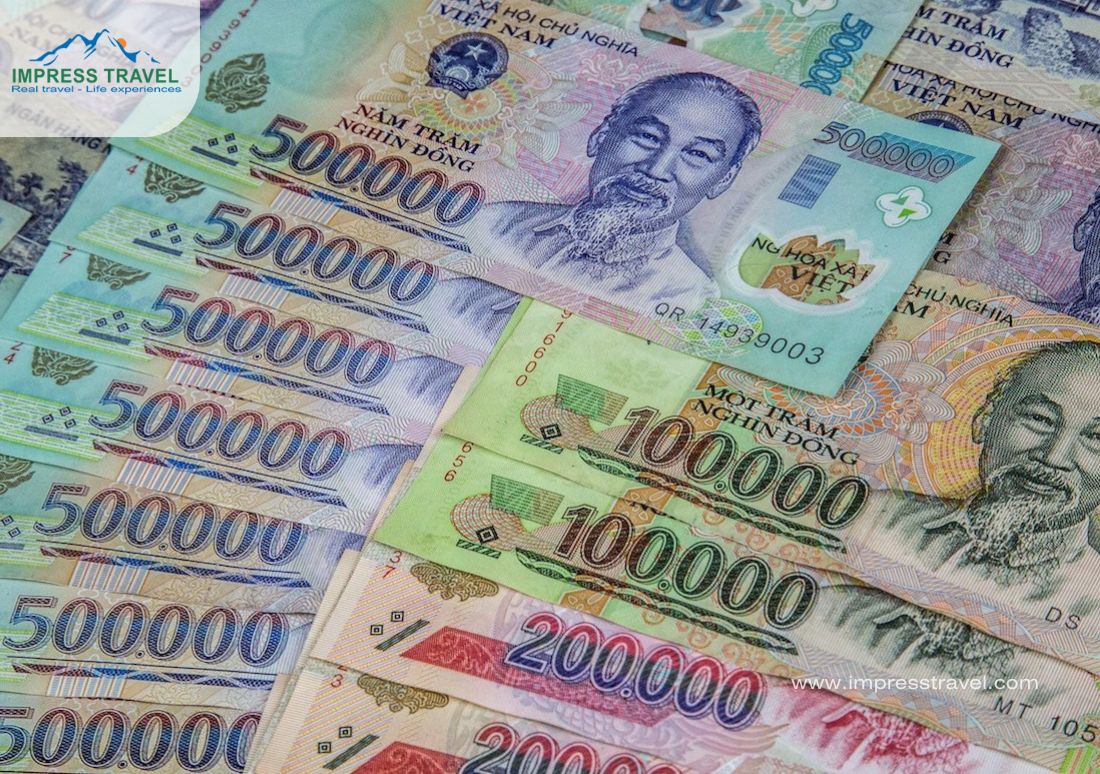
Exchange money in Mu Cang Chai- Vietnamese currency
Optimal Locations for Currency Exchange
Upon arrival in Vietnam, the best place to exchange currency is at Noi Bai International Airport in Hanoi, close to Mu Cang Chai. Airport currency exchange counters are easy to find and convert major currencies like USD, EUR, and GBP into VNĐ. However, be aware that airport exchange rates may not be as favorable as those in urban centers.
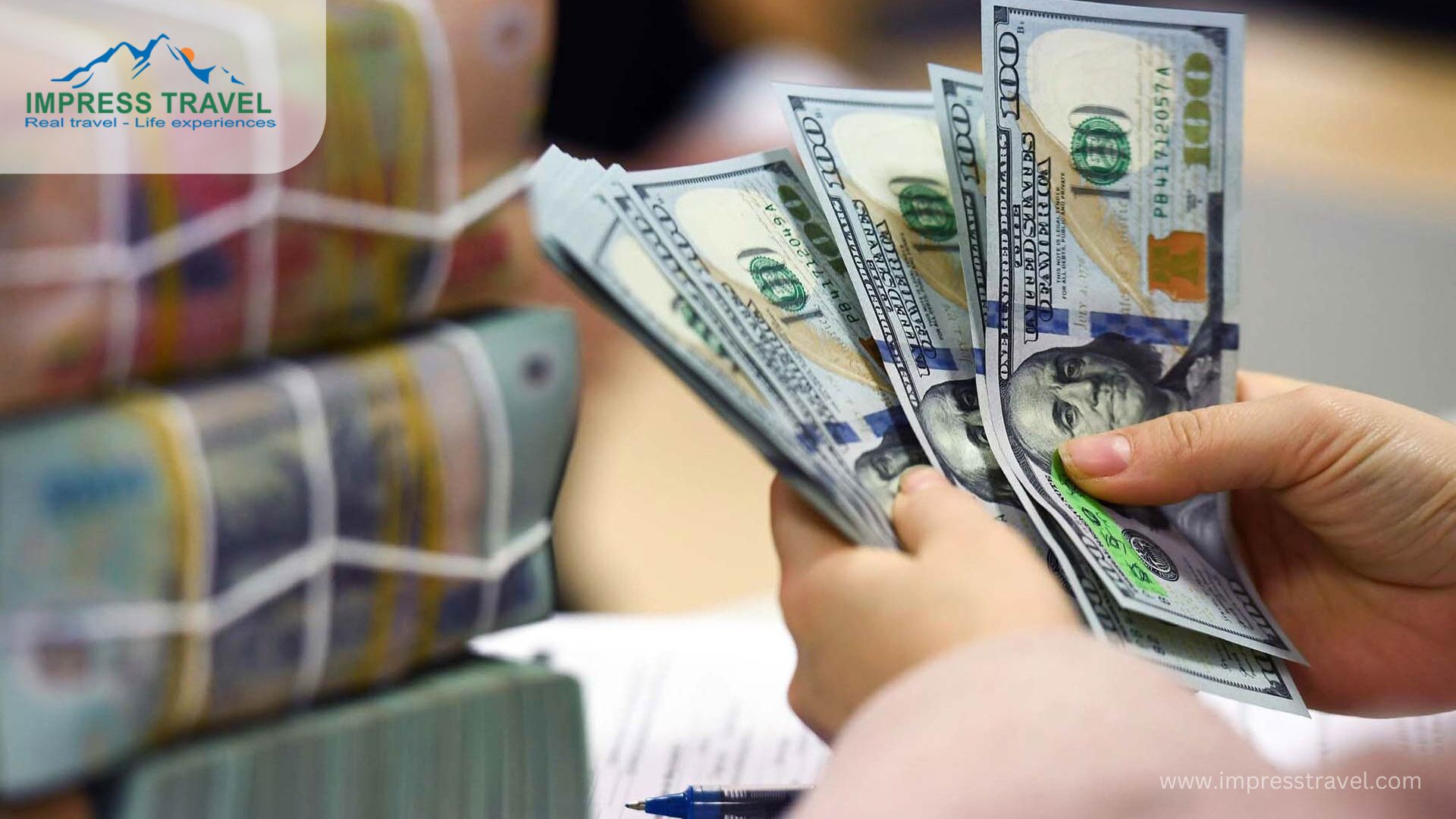
Currency Exchange
Advantages of Exchanging Money at Banks
Banks are the most reliable places to exchange money and ensure safe transactions. When traveling from Hanoi to Mu Cang Chai, consider visiting a bank for larger transactions. They usually offer the best exchange rates and lower fees compared to other services. In Mu Cang Chai, banking facilities might be limited, but local branches of Vietcombank and Agribank can assist with currency exchange.
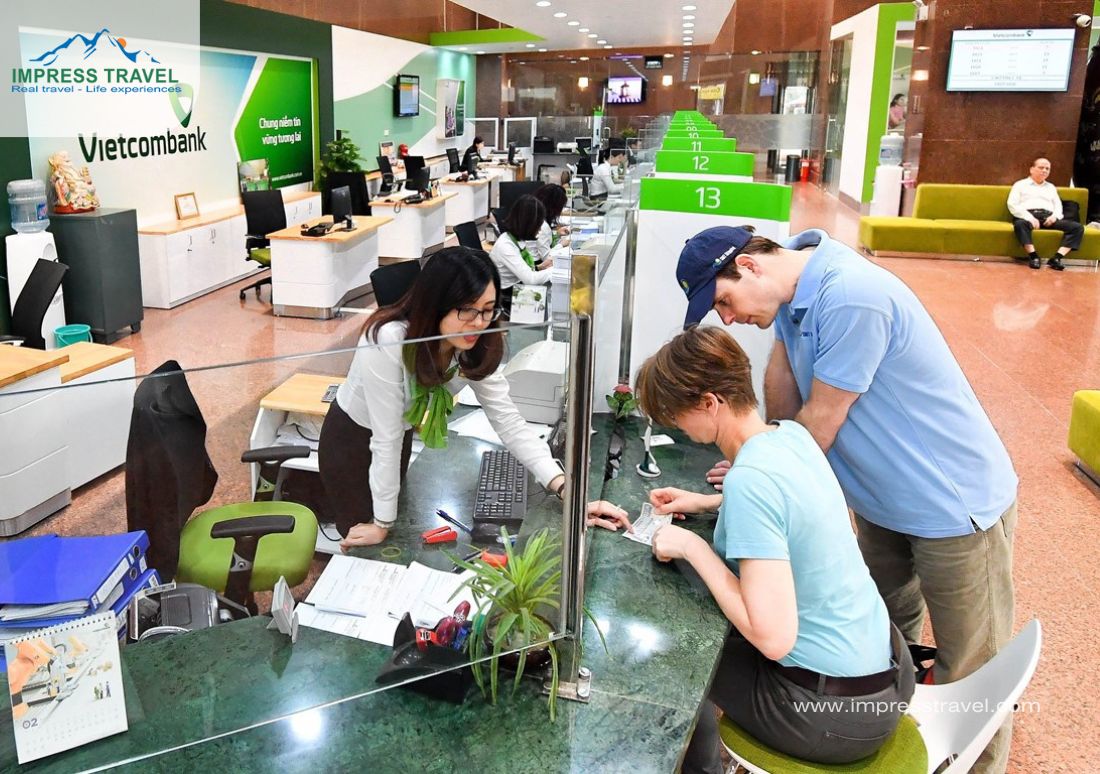
Exchange money at Vietcombank
ATM Access and Usage in Vietnam
ATMs are widely available in Vietnam, especially in larger cities like Hanoi. They offer a convenient way to withdraw VNĐ using international debit or credit cards. Keep in mind that each withdrawal may be subject to transaction fees depending on your bank’s policy and the ATM’s operating bank. It’s also wise to notify your home bank of your travel plans to avoid any issues with overseas withdrawals.
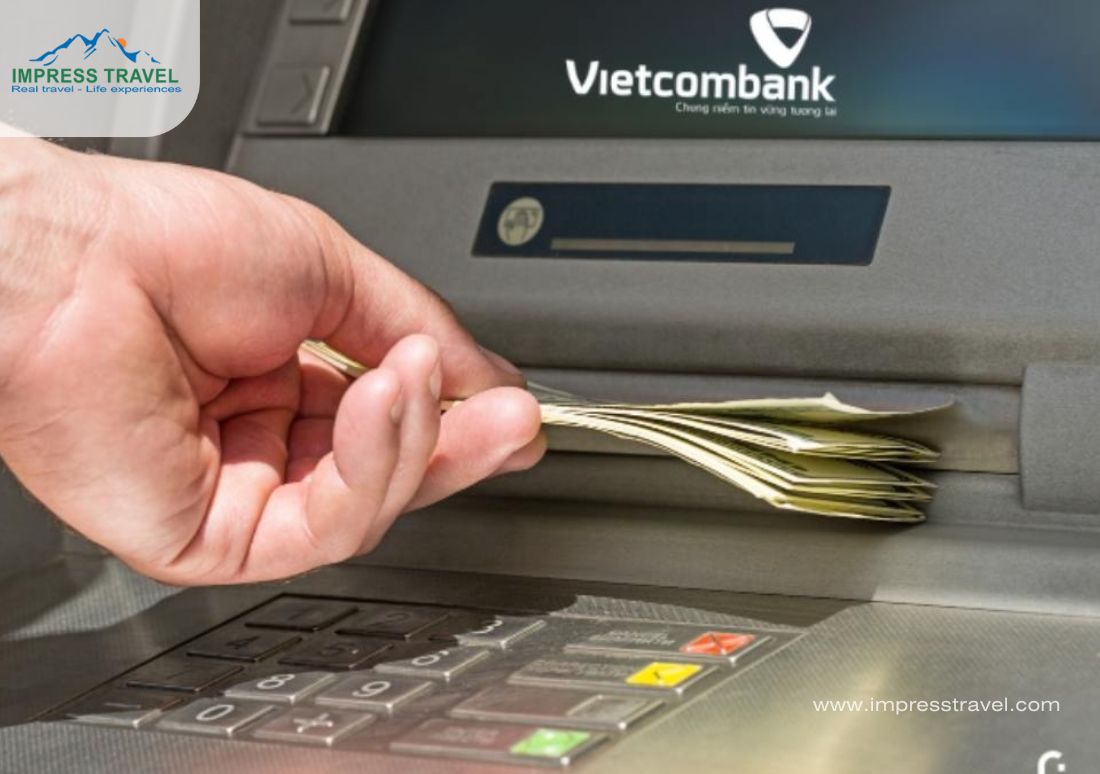
Exchanging Money at Banks
Hotel Currency Exchange Services
Many hotels in Hanoi and some in Nghia Lo, Yen Bai province, offer guests the convenience of exchanging money on the premises. Although the rates at hotels may not be as competitive as those at banks or local exchange bureaus, they provide the ease of transacting within the hotel. It’s advisable to inquire at the reception about the available rates and compare them with other options if possible.
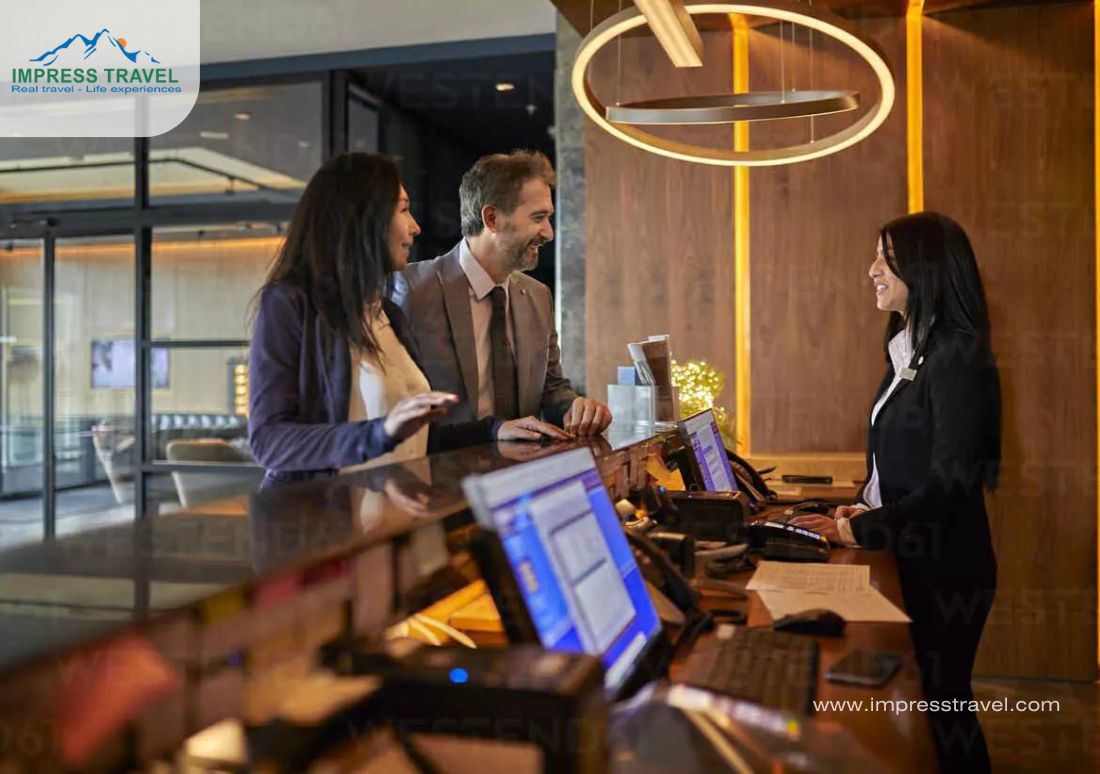
Exchange money at hotel
Counterfeit Currency: Detection Guide for Travelers
Visual Identification Techniques
Vietnamese Dong notes are detailed with intricate patterns and watermarks. A genuine note will have a clear and consistent texture, with watermarks that align perfectly when held up to the light. The notes are made from a durable polymer that resists tearing and water damage.
Security Features to Watch For
Each denomination has distinct color schemes and features, such as the metallic thread embedded in higher denomination notes. Familiarizing yourself with these features upon receiving your initial exchange can help protect against receiving counterfeit currency during your travels.
Best Practices for Safeguarding Your Money While Traveling
Effective Use of Money Belts
A common recommendation for travelers is the use of a money belt worn under clothing. This can prevent theft and loss. Money belts are particularly useful in crowded places such as markets or public transportation hubs.
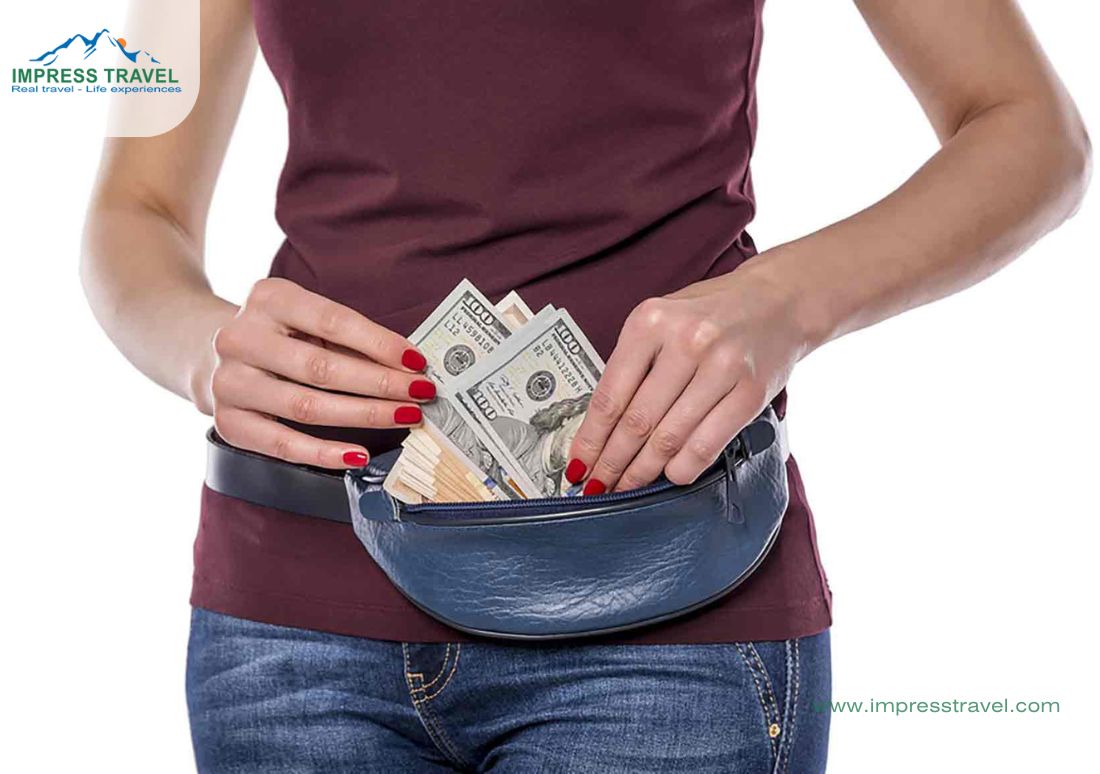
Use of Money Belts
Strategies for Smart Money Management
Distribute your cash in various locations among your belongings. Keeping all your money in one place is riskier, especially if you are carrying a significant amount. Also, utilize safes in hotels where available, to store excess cash or important documents.
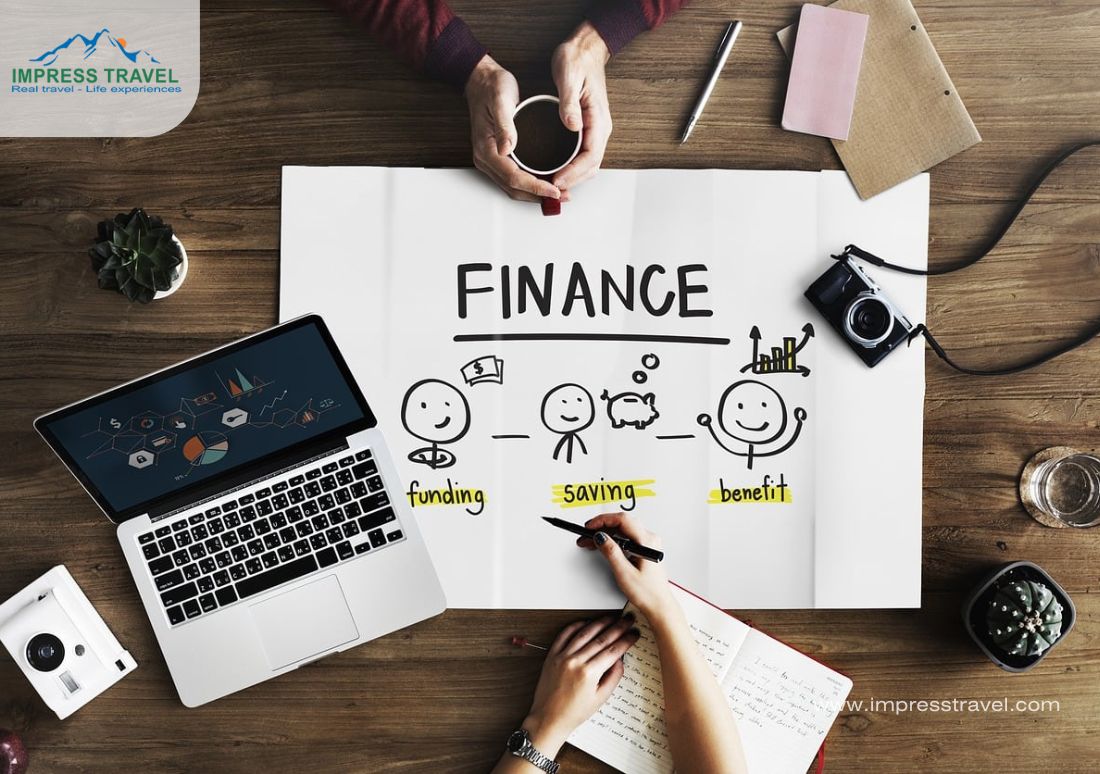
Strategies for Smart Money Management
Comparing Exchange Rates: A Visual Guide
A table comparing average exchange rates from different sources can visually guide readers on where to get the best deals. For instance, comparing rates from major banks like Vietcombank, BIDV, and Agribank with those offered at airport counters and hotels can provide clear insights on the most advantageous options.
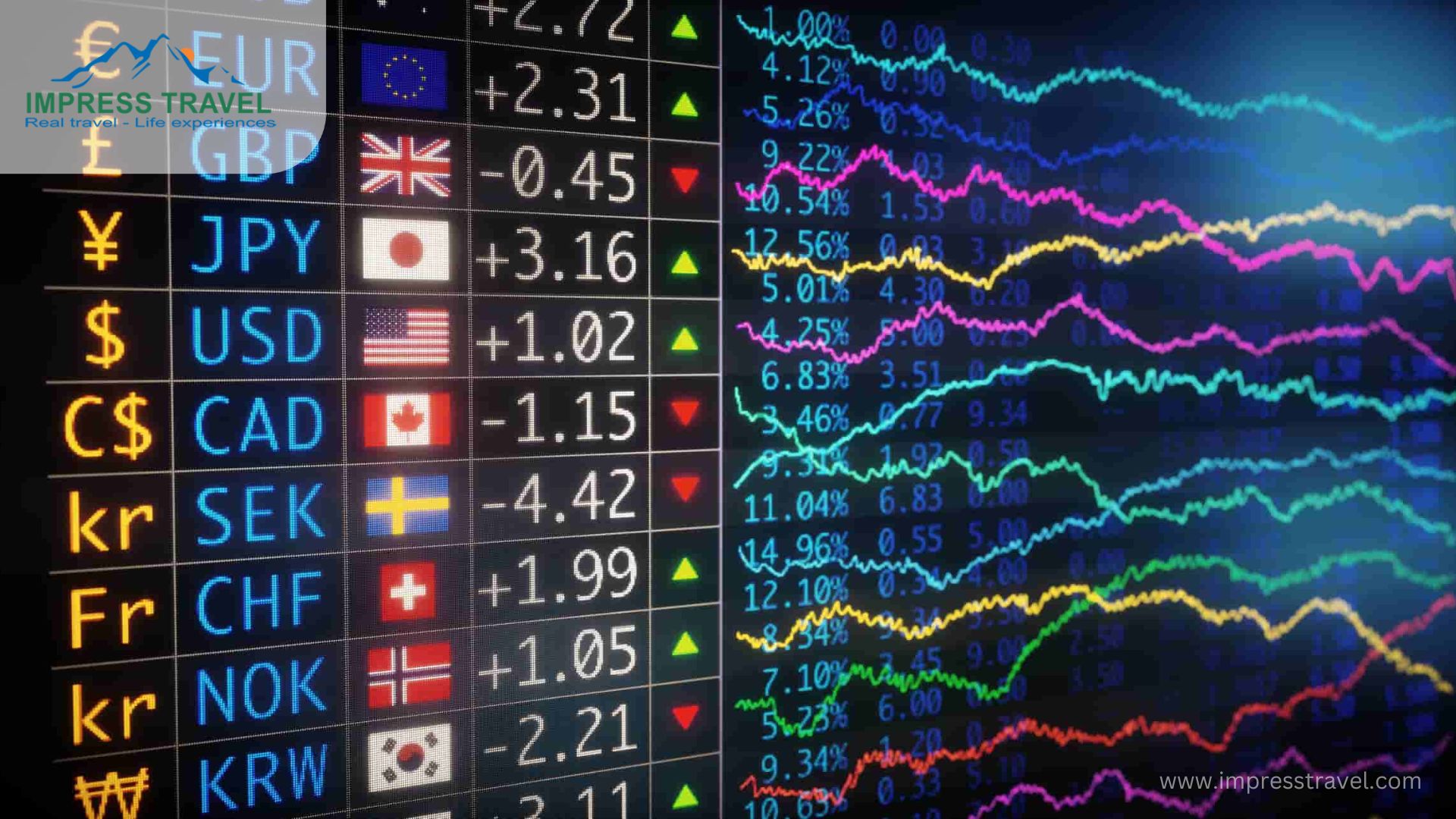
Comparing Exchange Rates
Frequently Asked Questions About Currency Exchange in Mu Cang Chai
- Handling Leftover Vietnamese Dong: Plan your currency needs carefully to minimize leftover cash. If you do have excess VNĐ, consider spending it at the airport on souvenirs or duty-free items, or exchange it before leaving Vietnam.
- Currency Export Restrictions: It is legal to bring in and take out amounts not exceeding 15 million VNĐ. For foreign currencies, the amount should not exceed the equivalent of 5,000 USD without declaration.
- Securing the Best Exchange Rate: Monitoring exchange rates online before traveling can help you decide the best time to exchange money. Additionally, always opting for formal financial institutions or authorized exchange bureaus minimizes the risk of poor rates and scams.
Conclusion
In conclusion, effective currency exchange planning, rate comparisons, and carrying the right denominations ensure a hassle-free visit to Mu Cang Chai. Each transaction enriches your cultural connection and supports the local economy. With well-prepared finances, your journey through Mu Cang Chai’s stunning landscapes will be as rich in experience as it is in beauty.
Don’t forget to regularly follow our Facebook page and Website for more interesting information about traveling to Hanoi and to book Hanoi tours at the best prices.






